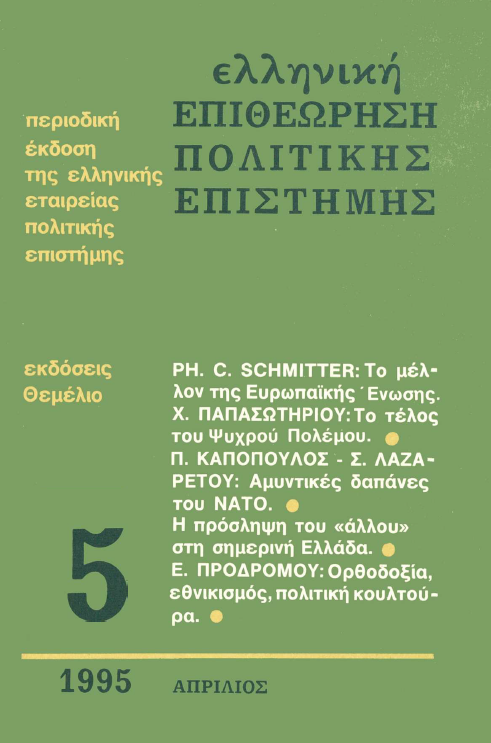The perception of and attitudes towards «otherness» in modern Greece

Abstract
The survey results show that there has been a rapid change of attitudes among Greeks vis-a-vis minorities. This change is identified not as a shift of attitudes towards an old issue (i.e exististing minorities) but rather as the articulation of new attitudes towards the recent influx of foreigners in to country. This is particulary clear because research was conducted in a period of turmoil which coincided with an unprecedented immigration of foreigners which in turn has greatly affected public attitudes. Thus, Greeks seem to be passing rapidly from a stage in which foreigners were ignored and/or tolerated to a stage of rejection and /or intolerance.
This project has brought to the fore the dynamic of the changing attitudes of the Greek population towards foreigners as well as a number of issues which need a diachronic rather than a synchronic approach. This, in combination with the continued fluidity of the assumed causes of these attitudes (i.e regional turmoil and the increasing influx of newcomers to the country), cries out for the constant monitoring of attitudes in the region through similar and even expanded studies of a comparative nature.
Article Details
- How to Cite
-
Βούλγαρης Γ., Δώδος Δ., Καφετζής Π., Λυριντζής X., Μιχαλοπούλου Κ., Νικολακόπουλος Η., Σπουρδαλάκης Μ., & Τσουκαλάς Κ. (2017). The perception of and attitudes towards «otherness» in modern Greece. Greek Political Science Review, 5(2), 81–100. https://doi.org/10.12681/hpsa.15290
- Issue
- Vol. 5 (1995)
- Section
- Articles

This work is licensed under a Creative Commons Attribution-NonCommercial-ShareAlike 4.0 International License.
Authors who publish with this journal agree to the following terms:
Authors retain copyright and grant the journal right of first publication with the work simultaneously licensed under a Creative Commons Attribution licence that allows others to share the work with an acknowledgement of the work's authorship and initial publication in this journal.
Authors are able to enter into separate, additional contractual arrangements for the non-exclusive distribution of the journal's published version of the work (e.g. post it to an institutional repository or publish it in a book), with an acknowledgement of its initial publication in this journal.
Authors are permitted and encouraged to post their work online (preferably in institutional repositories or on their website) prior to and during the submission process, as it can lead to productive exchanges, as well as earlier and greater citation of published work (See The Effect of Open Access).


